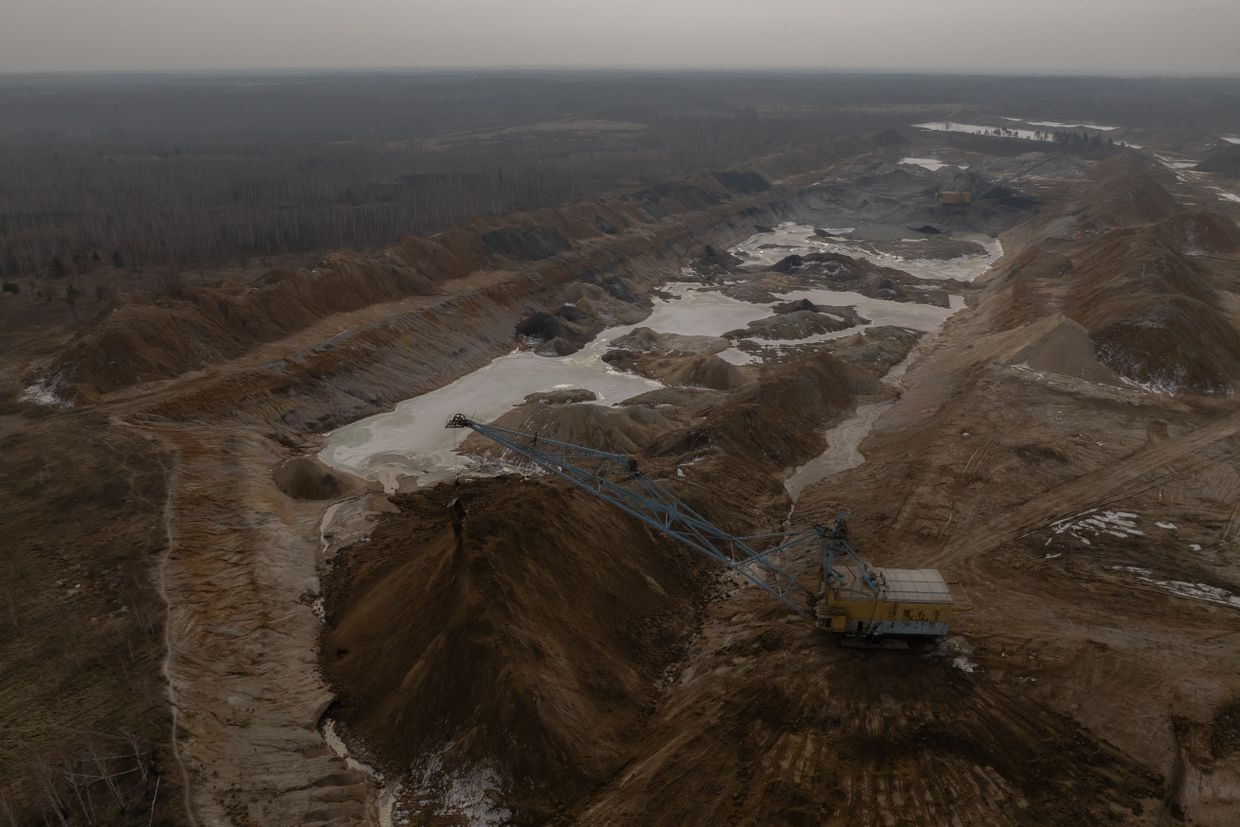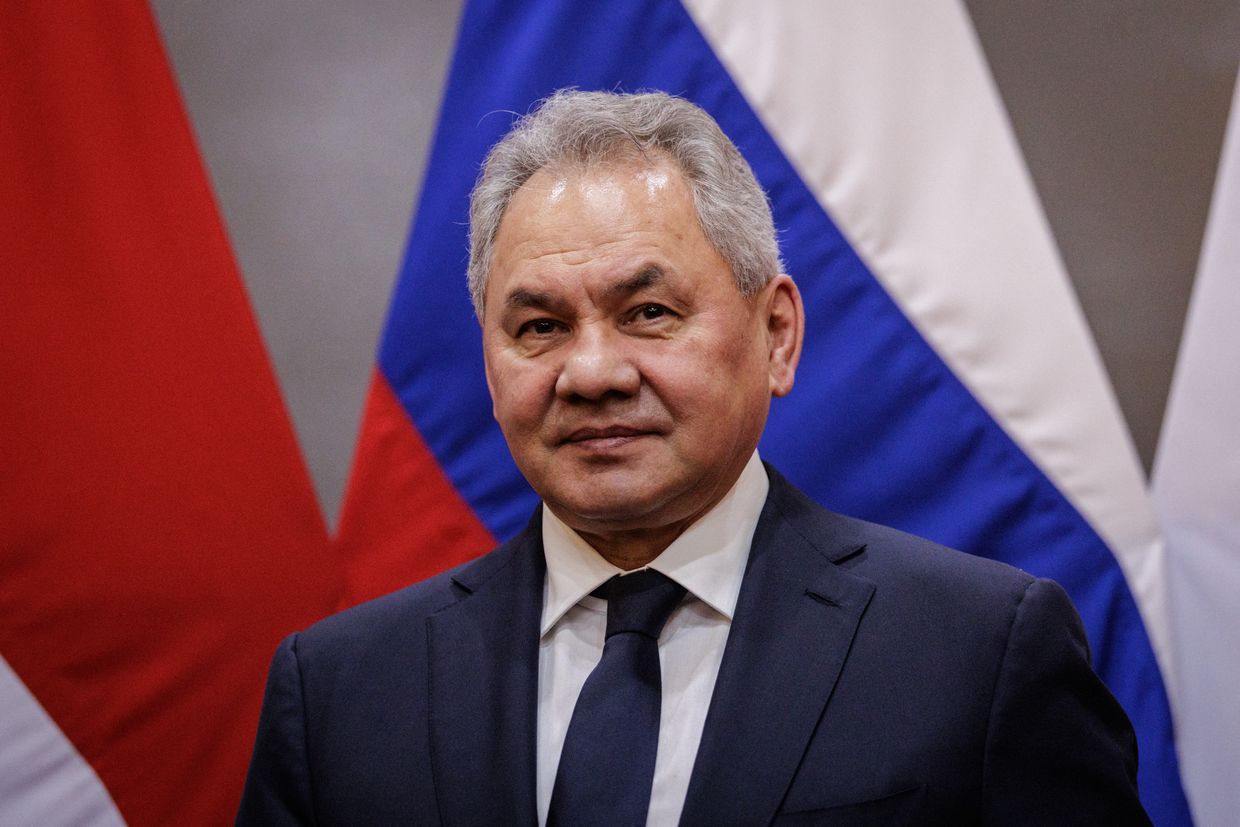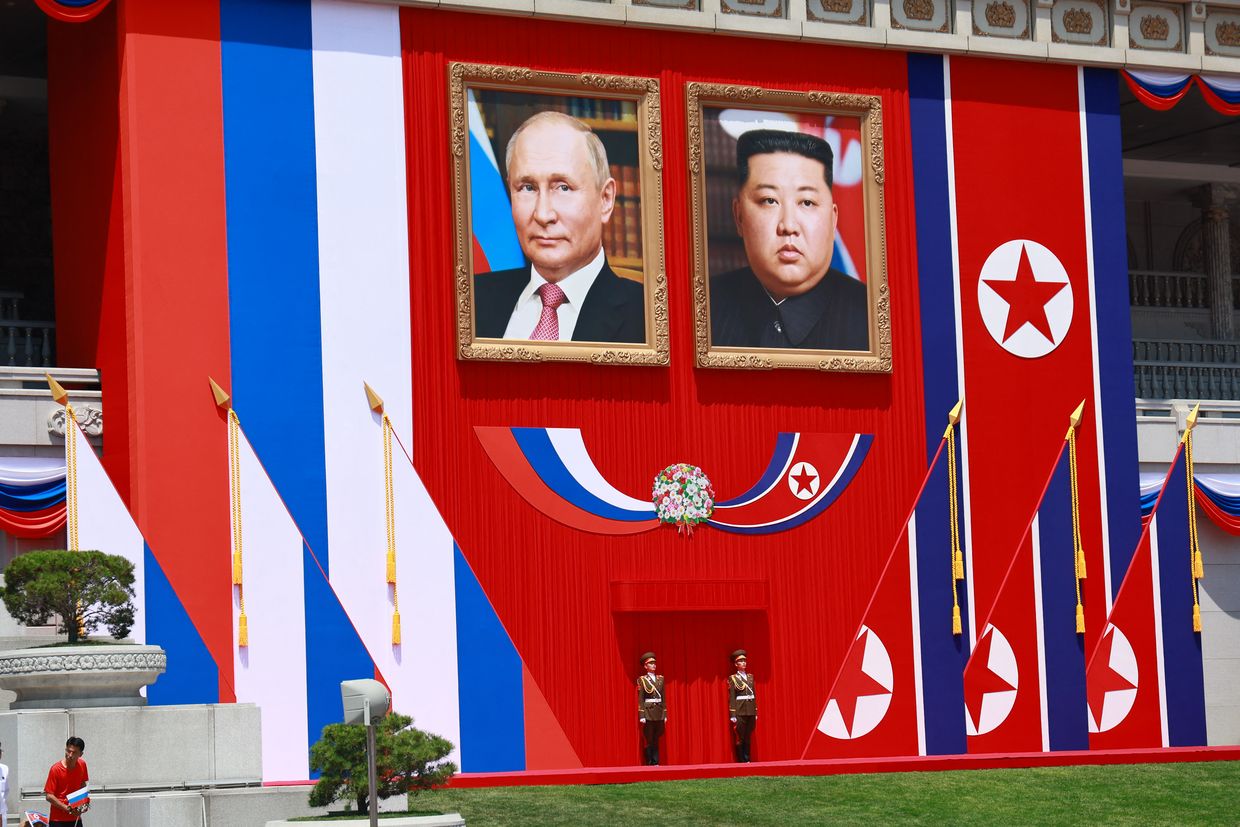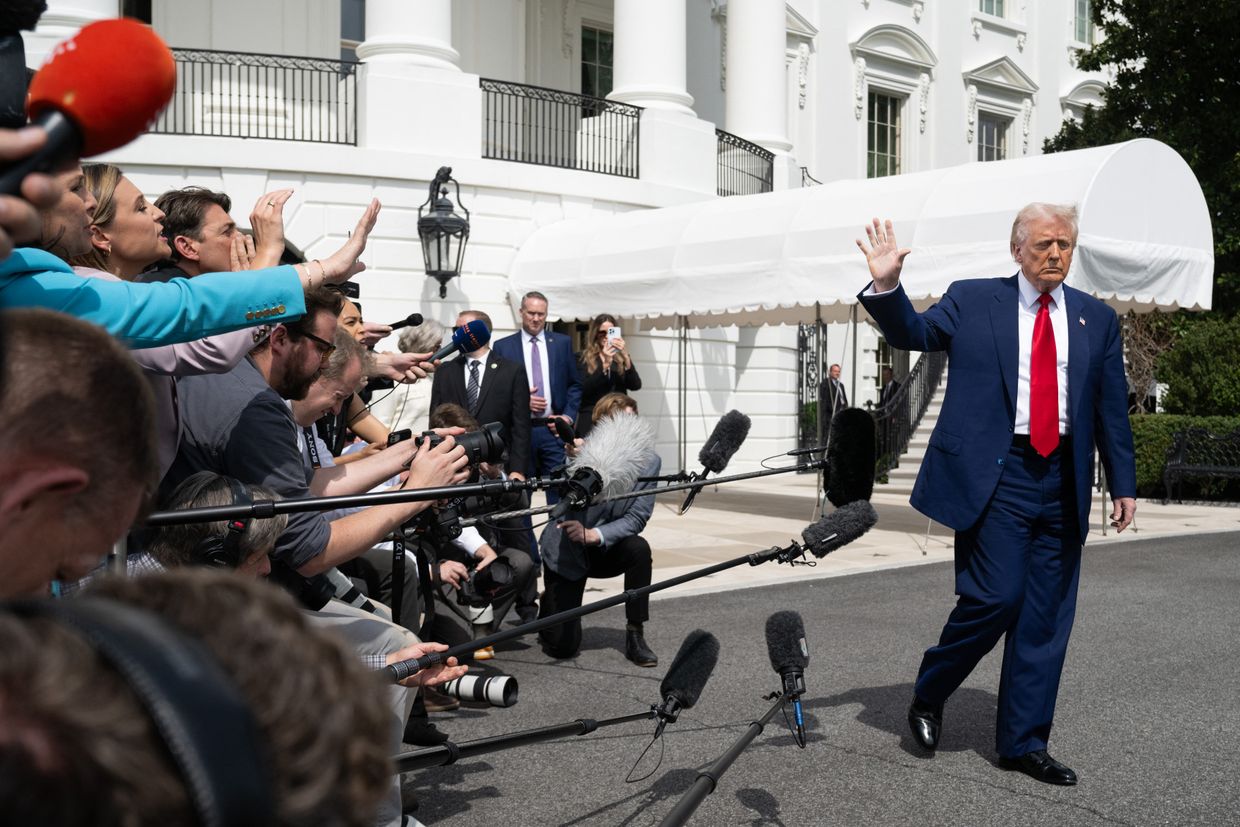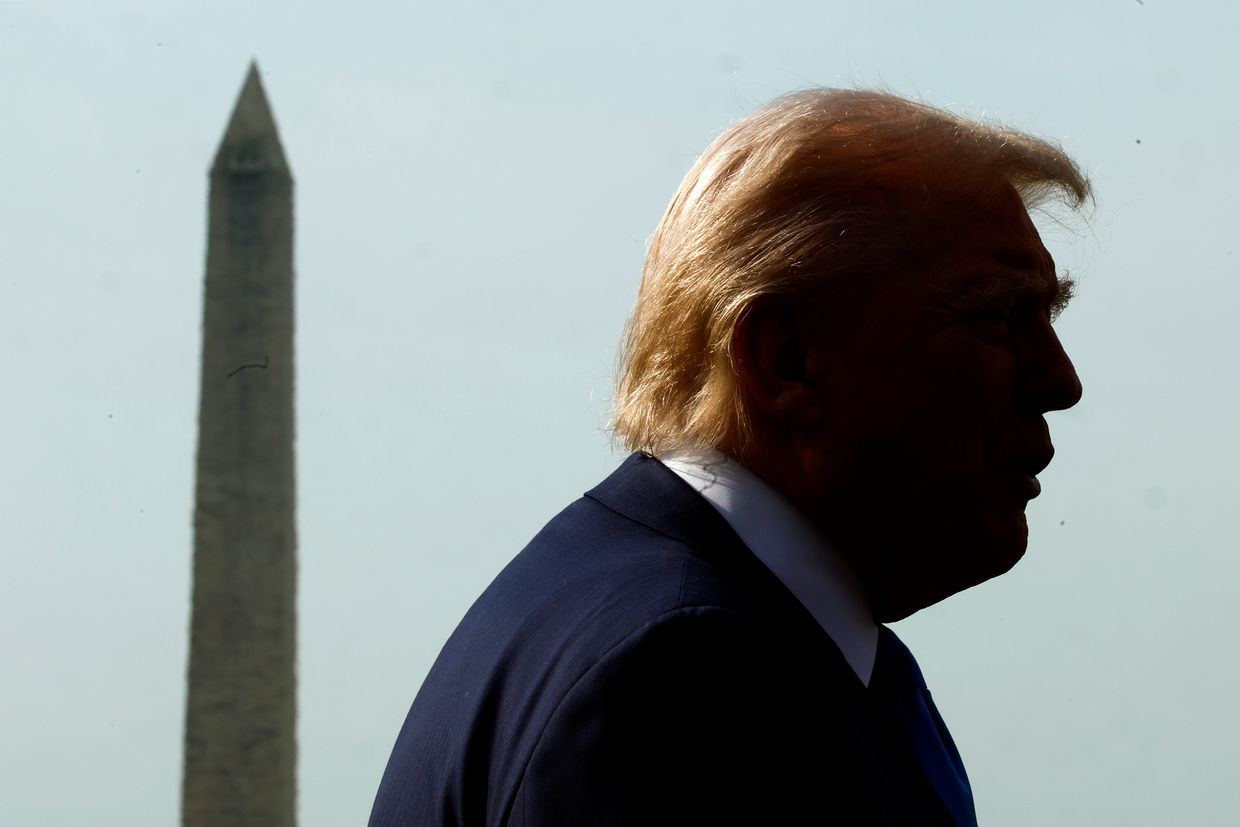The signing of a long-awaited minerals deal between the U.S. and Ukraine has come after months of tense negotiations as Ukraine worked on resetting its tumultuous relationship with U.S. President Donald Trump.
The deal, inked April 30, creates an investment fund and grants the United States special access to new projects developing Ukraine’s natural resources, such as oil and gas, lithium, graphite, and rare earth elements.
Trump, who has been looking to secure a peace deal between Kyiv and Moscow, had been pushing Ukraine to sign the agreement, arguing that the U.S. should benefit more from its assistance to Ukraine. The country has been heavily reliant on U.S. aid since Russia’s full-scale invasion in 2022.
To the relief of many in Ukraine, the final deal avoids many elements present in earlier drafts viewed by experts as exploiting Ukraine.
“We don’t see very problematic things” in the deal, said George Popov, a research analyst at the National Association of Extractive Industry of Ukraine. “The main highlight is: we are very happy that we solved the conflict with Trump.”
He cautioned, however, that the signing is only the first step in a long process before the agreement is implemented. The success of the plan depends on technical aspects that still need to be hammered out.
“We see a lot of political moments that the agreement is trying to solve, and not business and administrative points,” Popov added.
“The Ukrainians managed to take out the worst excesses of the deal.”
Notably missing from the deal is one of the provisions most desired by Kyiv — security guarantees that could effectively deter further aggression from Russia after a ceasefire. It is also unclear how much investment will flow into the fund.
“The Ukrainians managed to take out the worst excesses of the deal,” said Timothy Ash, an associate fellow at Chatham House's Russia and Eurasia Program, who called the initial deal "extortion."
Yet the new deal, he said, is "warm words rather than real investment. I cannot see any big and meaningful investment in Ukraine until security is assured. And this deal does nothing there.”
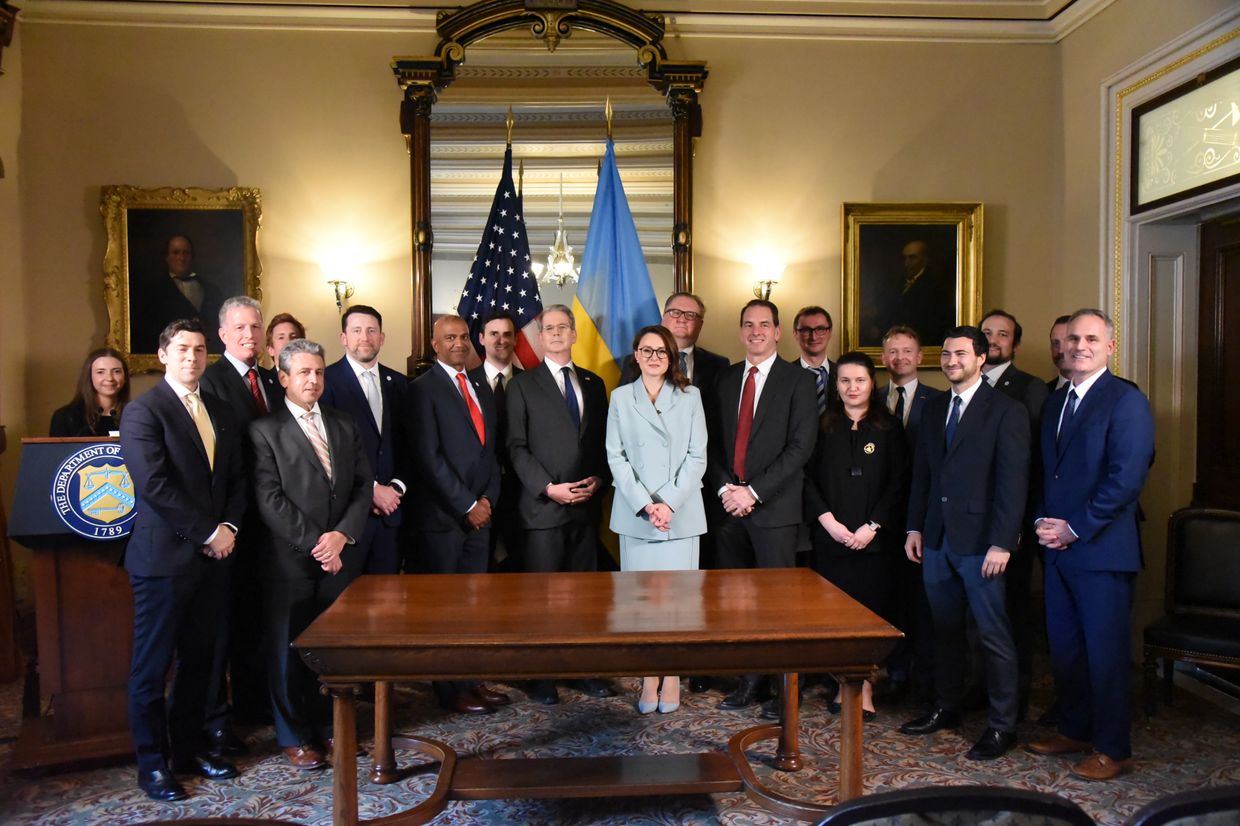
Positive signs in a stormy saga
Since taking office in January, Trump has repeatedly pressured and threatened Ukraine in his attempts to secure a peace deal, while mostly avoiding making demands of Russia.
The natural resources deal has remained a point of contention in the months since a hostile exchange in the Oval Office between Trump and President Zelensky on Feb. 28. Zelensky had flown to the U.S. to sign an earlier version of the deal, but left without doing so in the wake of the argument.
A month later, Trump said to reporters aboard Air Force One, “(Zelensky’s) trying to back out of the rare earth deal, and if he does that, he's got some problems. Big, big problems.”
In recent days, however, Trump has made several comments suggesting his previous hardline stance against Ukraine is softening, while his patience with Russia is thinning. In signing the natural resources deal, Kyiv hopes to further increase cooperation and improve relations with the Trump administration.
"I am grateful to everyone who worked for the agreement and made it more meaningful. Now the document is such that it can ensure success for both our countries — Ukraine and the United States," First Deputy Prime Minister and Economy Minister Yulia Svyrydenko, who signed on behalf of Ukraine, said.
One of the key wins for Kyiv’s negotiating team was removing earlier provisions that put Ukraine on the hook to pay back Washington for aid already sent. The total aid provided by the U.S. is roughly $130 billion, according to independent tracking by the Germany-based Kiel Institute, and was granted with no expectation of repayment.
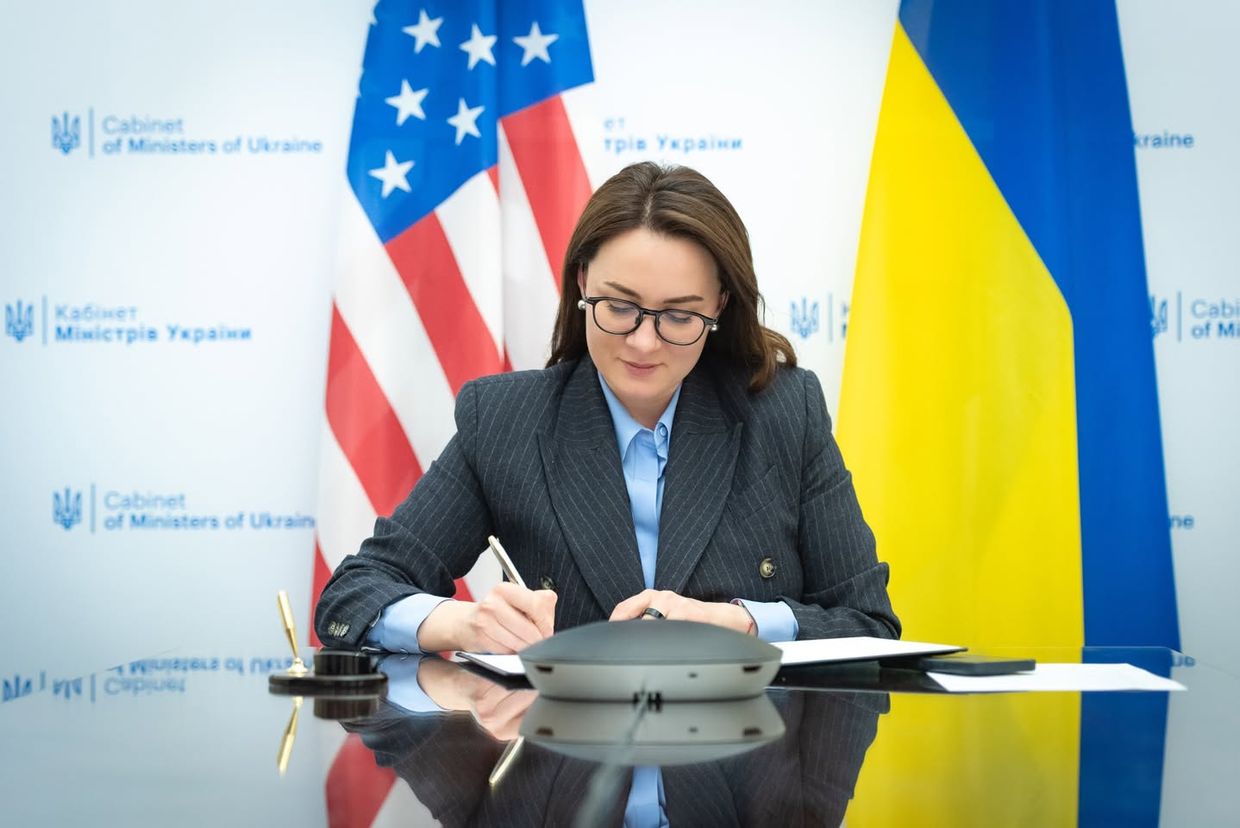
Another major victory for Kyiv is new language in the deal that allows it to be altered if it interferes with Ukraine’s accession to the European Union. Earlier versions raised alarms after experts noted it could become a roadblock to Ukraine’s long-standing ambition to join the bloc because it would privilege the U.S. over other foreign partners.
“Ukraine gives half of the revenues from new licenses for natural resources to the fund, which reduces potential revenues for the Ukrainian budget for many years.”
“The Commission takes note that today’s agreement includes specific provisions aiming to safeguard Ukraine’s application to join the European Union, and to avoid conflicts with its current obligations under the EU-Ukraine Association Agreement and Deep and Comprehensive Free Trade Agreement,” Thomas Reigner, European Commission spokesperson, told the Kyiv Independent. “We look forward to these being implemented rigorously.”
Ukraine applied to join on Feb. 28, 2022, four days after Russia’s invasion, a move widely supported by Ukrainians.
The current deal also gives Ukraine full control over its land, infrastructure, and resources, and does not apply to existing projects. Questions about Ukraine’s autonomy and the independence of existing companies had sparked fears for many of its supporters during negotiations.
‘We are waiting for the details’
In addition to an absence of security guarantees, opposition MP Yaroslav Zhelezniak, who heads Ukraine's Parliamentary Committee on Finance, Tax, and Customs Policy, pointed out several other potential risks introduced by the deal on his public Telegram channel.
“Ukraine gives half of the revenues from new licenses for natural resources to the fund, which reduces potential revenues for the Ukrainian budget for many years,” he wrote after the deal was publicized. The deal could also limit Ukraine’s ability to choose the best commercial terms and partners for investments, and may limit financial independence by guaranteeing conversion and transfer of funds, he noted.

“We are waiting for the details,” Zhelezniak told the Kyiv Independent. “I don’t think there’s enough in the text to evaluate it yet,” he said.
The deal still needs to be ratified by parliament, which would happen May 13-15 at the earliest, according to Zhelezniak. Then, parts of Ukraine’s tax and budget codes will need to be adjusted to accommodate the deal.
More information about the deal is likely to be revealed in two future documents, Zhelezniak added. First, an agreement between the agencies appointed by each country to administer the fund, and then a technical document that will explain how the process will work and how money will be distributed to partners.
The multi-billion-dollar question mark
One of the biggest outstanding questions is whether this deal will actually attract additional investment to Ukraine’s energy and mining sectors. Investment in Ukraine plummeted after Russia invaded Crimea in 2014, and dropped again after the full-scale invasion in 2022.
While revenues from Ukraine’s licenses will be added to the fund, it remains unclear how the Trump administration will encourage America's private sector to invest in Ukrainian projects. Unlike Ukraine, the U.S. does not have government-led mining or gas companies.
Although past assistance is excluded from the fund, future military aid from the U.S. could count as a contribution. However, this would not contribute to the fund's goal of funding deeper investment in Ukrainian resource development.
“To the extent that the deal contributes to keeping the Trump administration engaged in supporting Ukraine, militarily and otherwise, it is a good thing,” Edward Chow, a non-resident senior associate at the Center for Strategic and International Studies, told the Kyiv Independent. “I think the parties are probably just happy that they have something to sign.”
“The question is, what does this agreement do from a potential investor’s point of view that would make the investor want to invest more in Ukraine?”
For example, he said, the deal doesn’t include provisions like providing risk insurance at a reasonable price that could attract investors.
The additional details in further agreements would have to address concerns from the business side before significant investment occurs.
“Clearly there was work done in negotiations, but I still don’t see a really comprehensive agreement that, from an industry investor point of view, says, ‘Okay, this changes everything,’” Chow said.
Alex Cadier contributed reporting.
